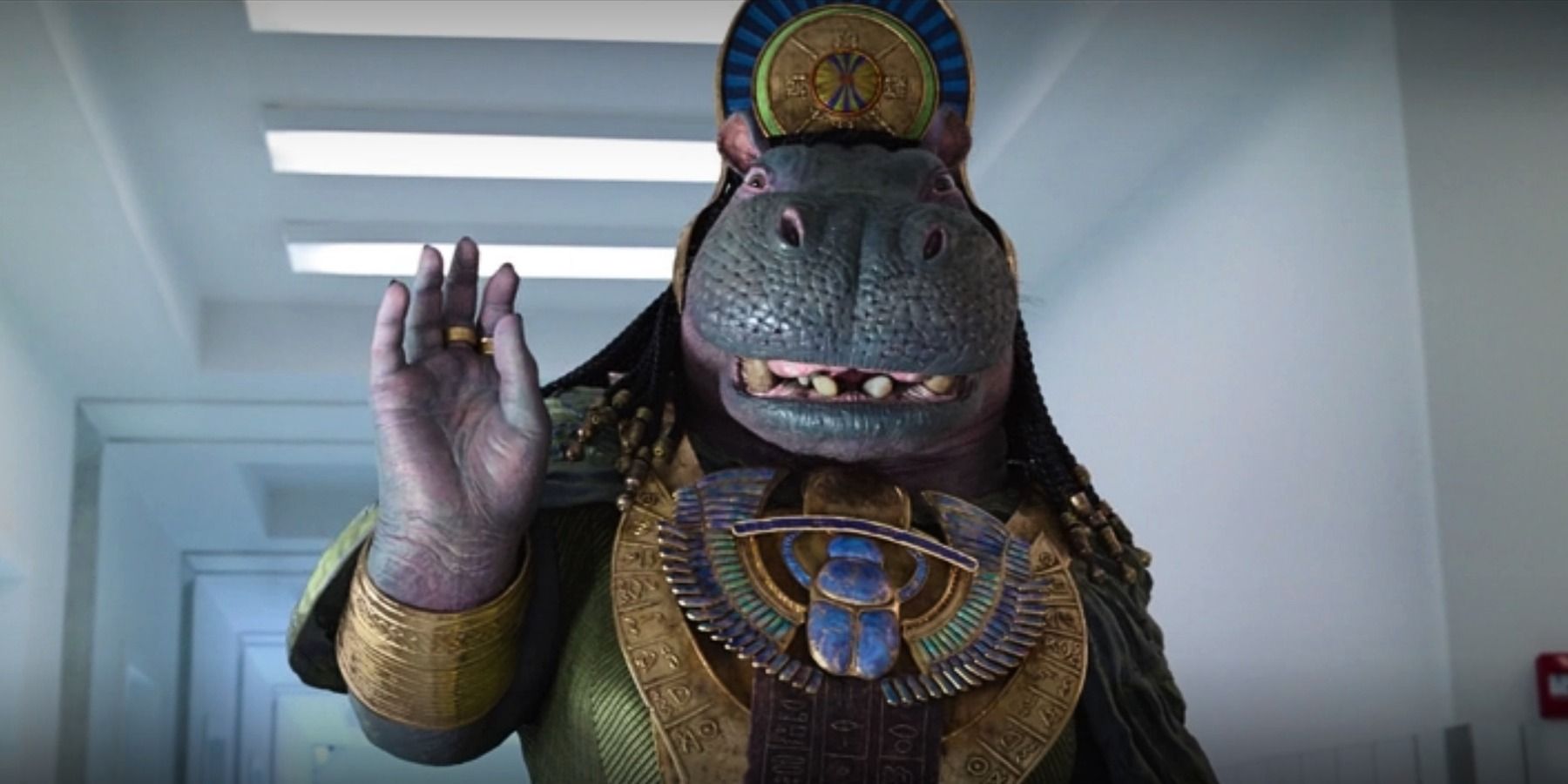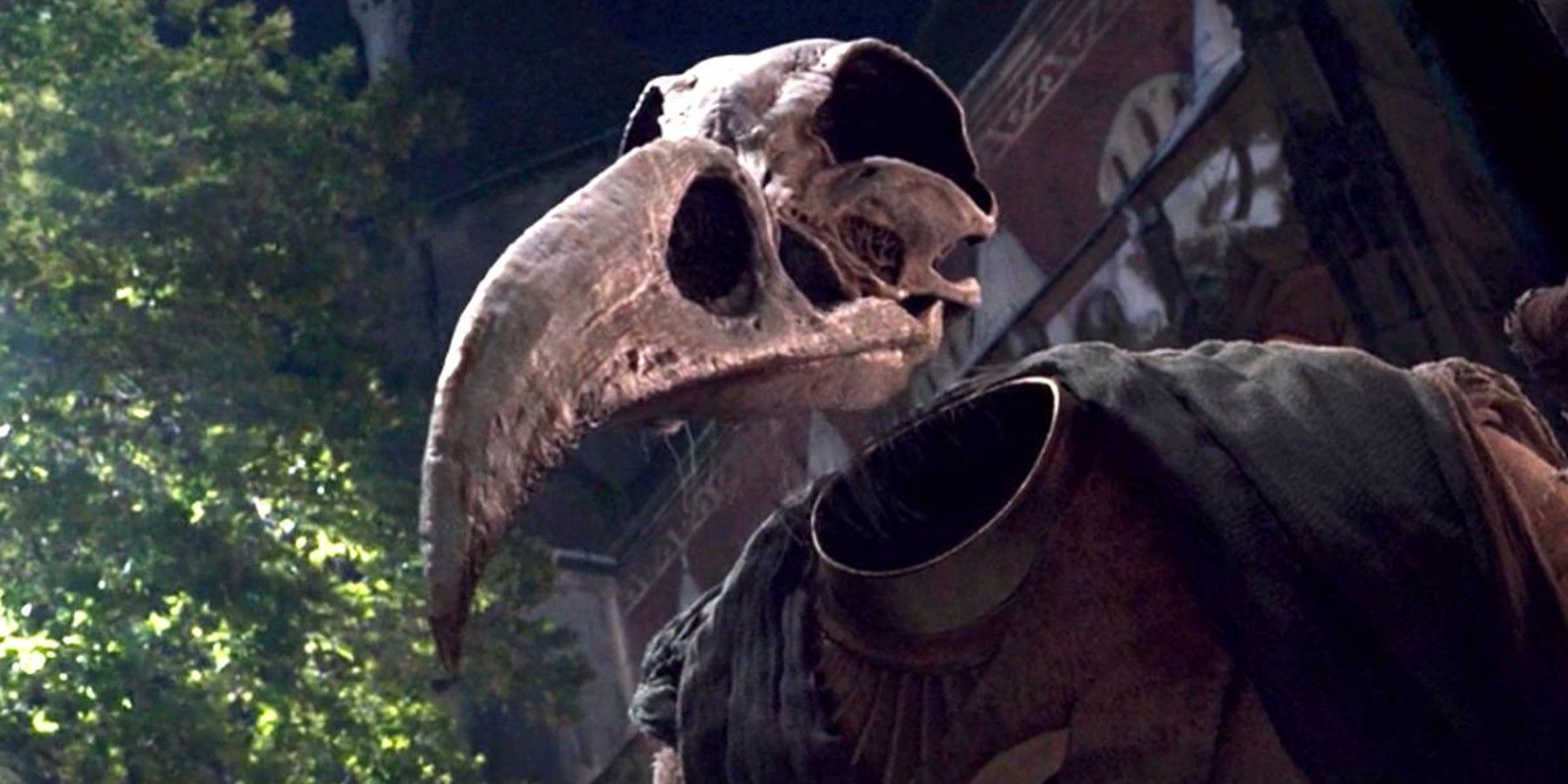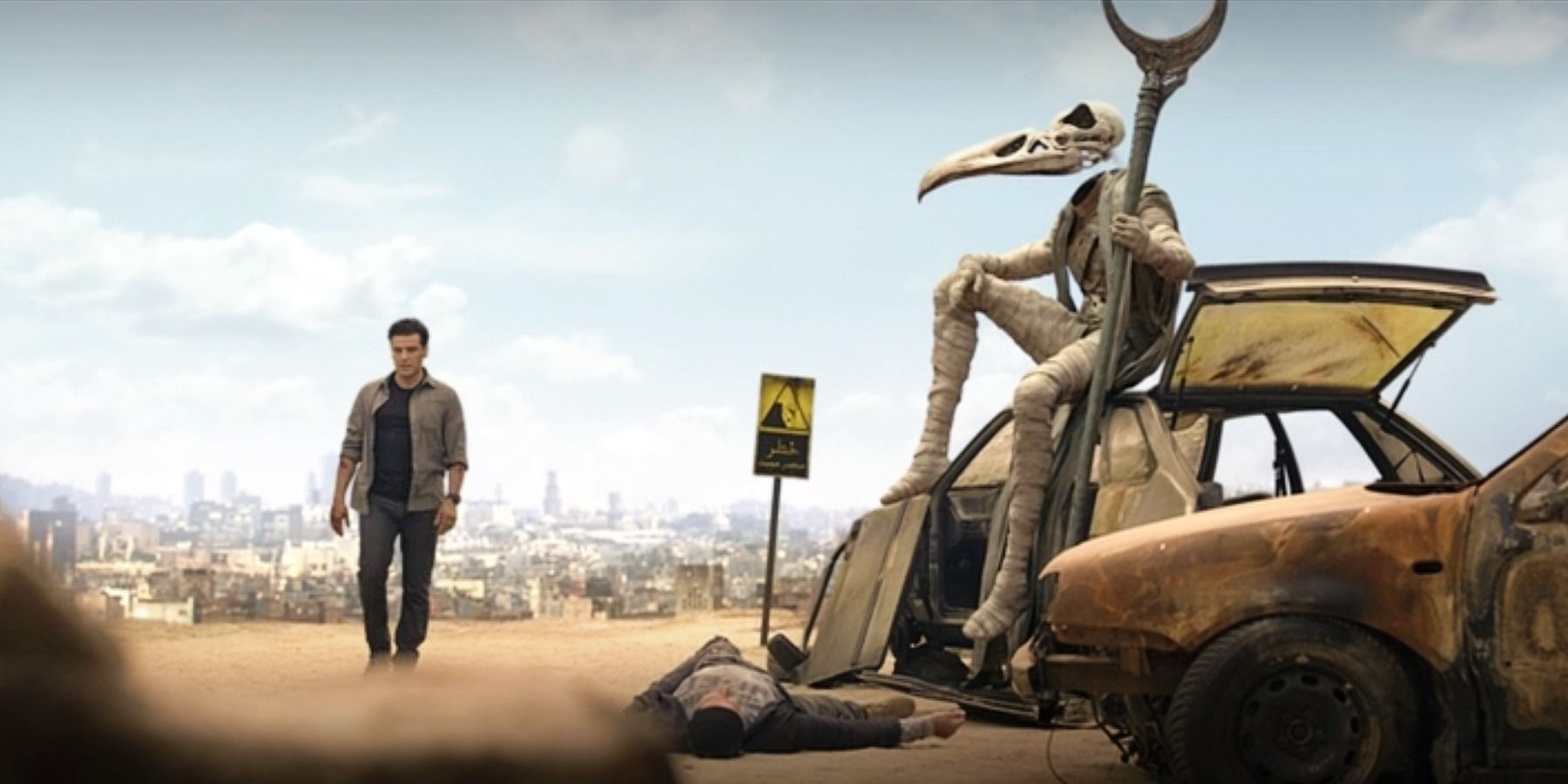Gods aren't exactly new to the Marvel Cinematic Universe, but the Moon Knight series on Disney Plus has had a great deal of fun introducing the new deities. The Egyptian Ennead makes up a great deal of the main cast of the series, but they could also change some interesting details of the larger MCU.
Moon Knight is heavily built around a handful of Egyptian gods, most of whom select avatars to act on Earth, but who still appear openly throughout the series. From Moon Knight's patron Khonshu, to the villainous Ammit, to the more ambiguous Taweret, these deities are interesting new figures in the franchise.
One of the most interesting things about the portrayal of the Ennead in the MCU is the way it conflicts with the presentation of other deities. These characters are based on beings once worshipped by ancient people, but still worshipped amongst some circles, much in the same way as the Asgardians of the Thor films. While Thor went in an Ancient Aliens/Chariots of the Gods direction with their depiction of deific figures, Moon Knight seems to portray their gods much more traditionally. The MCU's Ennead was once revered as gods, but they retreated into hiding when their base of worship slowly dispersed or died out. They aren't visible to most people, and they don't seem to be able to affect change on Earth without a human avatar. This is a radical change in how gods have been portrayed in the MCU.
The Norse deities, as they appear in the MCU, have only a few throwaway lines referencing human worship. Loki derisively points out that the most minor miracle of their capability would illicit worship from early man. Thor and company practice magic, fight mystical creatures, and participate in legendary battles, much like in their source material. Thor has a line in the first film in which he describes his people's appreciation for science and magic as one and the same. The Asgardians of the MCU are closer to powerful aliens than they are to deific figures. Their home is an alternate realm, but it's no heaven. Captain America even dismisses their theoretical godhood in The Avengers. The Asgardians seem barely interested in the worship of human beings, only acknowledging humanity on rare occasions.
On the other hand, in the little time fans have gotten to know them, the franchise's portrayal of the Egyptian Ennead is near the opposite of how the Asgardians are depicted. It is not yet known where the Egyptian deities come from in the MCU. They could also be intepreted as somehow alien, hailing from a different alternate dimension. The introduction of the Egyptian gods is, however, important for a number of MCU staples.
The people of Wakanda worship the Egyptian pantheon for reasons that have gone unexplained. The patron deity of T'Challa's home nation is Bast, the Panther God. Bast gave the first Black Panther the Heart-Shaped Herb, awakening his superhuman powers. In one of his first MCU appearances, T'Challa explains that his people's concept of death is led by Bast and fellow Egyptian deity Sekhmet. T'Challa briefly visits the Ancestral Plain during his first solo film. Bast appears only in backstory in the films thus far, but she is an important figure in Black Panther's history and future. Like the rest of her Egyptian peers, Bast is treated with the reverence of an in-universe deity. The introduction of the other members of the Ennead and related figures further populates the universe with that type of figure.
In the infinite realities of the MCU, nothing is off-limits anymore. The problem is how the different gods are treated. Why are some gods deified, while others are treated no different from their human co-workers? If the Ennead is another powerful race of aliens, how are they different from the Asgardians? Or, furthermore, how are they different from godlike alien beings like Thanos? How does worship affect them? The existence and influence of real deities should be a substantial revelation in the lives of almost every living person. This is an even greater escalation in the logical heightening of everyday life that occurred when aliens, robots, and wizards began popping up on New York City streets. Mankind has imagined, believed into being, and revered deities for longer than it is possible to track, and their factual existence should be one of the most important events in the franchise's reality.
Depending on Moon Knight's influence on future Marvel projects, the Ennead could pop up in tons of interesting ways. Bast will almost certainly play a role in future Black Panther projects, and Khonshu has to stick around as long as Marc is around, but the others could be complete non-entities. Given the deities' proclivities towards selecting avatars, any number of other characters could find themselves granted fantastic powers by deities. The recently released trailer for Thor: Love and Thunder has shown off a bit of Zeus, meaning MCU fans will have even more gods to deal with. Fans will have to wait and see how Marvel handles these unique and powerful beings.



